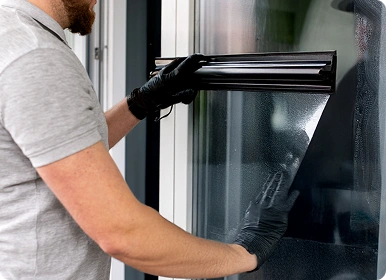- Open Mon-Sat (9AM to 6PM)
- 0406777737
- 7starstint@gmail.com
- 21/43-45 Bonview Circuit Truganina, VIC 3029

With Melbourne’s ever-changing climate—from harsh summer sun to cooler winters—homeowners are seeking smarter ways to keep their homes comfortable and energy-efficient. One often-overlooked solution? Home window tinting near me.
From reducing solar heat gain and lowering energy bills to enhancing privacy and protecting interiors from UV damage, residential window tinting offers long-term value. In this guide, we’ll explore why more Melbourne homeowners are investing in tinted film for houses, the types of films available, and how house window tinting in Melbourne can transform the way you live and save.
Residential glass tinting involves applying a thin, transparent or tinted film to the inside surface of your home’s windows. These films are designed to control heat, reduce glare, block ultraviolet (UV) rays, and enhance privacy without compromising natural light.
Modern window films use advanced technology, such as UV tint and nano-ceramic layers, to deliver high-performance protection without darkening your interiors.
Melbourne’s unique climate—with hot summers, unpredictable UV levels, and rising energy costs—makes house window tinting in Melbourne a practical choice for many households. Whether you live in a high-rise apartment or a heritage home, tinted films provide an affordable solution to climate control challenges.
Homeowners searching for home window tinting near me are also becoming more conscious of environmental impact and energy consumption. With tinting, you’re not just improving comfort—you’re investing in a more sustainable home.
Solar heat gain through windows is one of the biggest contributors to rising indoor temperatures. Tinting helps reject a significant portion of solar radiation, keeping your home cooler during Melbourne’s warm months.
Tinted window films improve insulation and regulate temperature, meaning your HVAC system doesn’t have to work as hard.
Investing in energy saving home tint is a long-term strategy that pays for itself in reduced electricity bills.
Harmful ultraviolet rays can fade flooring, furniture, artwork, and upholstery. Window tint blocks up to 99% of UV rays.
Residential tints increase daytime privacy without sacrificing natural light. Reflective or frosted films prevent outsiders from seeing in.
Watching TV or working on a computer in a bright room can be frustrating. Tinting helps cut glare without darkening your space.
Some types of window films also add shatter resistance, making it more difficult for windows to break or be smashed during a storm or attempted break-in.
When looking into residential glass tinting, you’ll find several options designed for different priorities. Here’s a quick comparison of the most popular types:
Designed to reduce heat and glare while maintaining visibility, ideal for Melbourne’s hot summers.
Nano-ceramic technology delivers high performance without affecting window clarity. Blocks heat, UV, and glare with a neutral tone.
Reflect sunlight and provide a mirrored finish during daylight hours. Excellent for privacy and energy control.
Add style and privacy to bathrooms, front doors, or office areas. Available in various patterns and opacities.
Maximise UV protection for sun-facing homes and preserve interior furnishings and artwork. Each type of film can be tailored to your needs and installed by professionals offering home window tinting near me.
While whole-home window tinting is an option, many Melbourne residents focus on key areas, including:
Whether you’re looking for full coverage or select room tinting, house window tinting in Melbourne offers flexible solutions.
Many homeowners wonder, “Is tinting really worth the investment?” The answer is yes—and here’s why.
Tinting is a low-maintenance improvement that offers both immediate and long-term value for Melbourne homes.
Working with professionals ensures the tint is installed cleanly, legally, and efficiently.
Looking for licensed professionals? Start with a search for home window tinting near me to find experienced installers in your area.
Melbourne’s weather patterns and housing styles require expertise in selecting and applying the right window film. A local expert understands:
Hiring someone nearby also means faster service, follow-ups, and better accountability. Try searching residential glass tinting near me for top-rated services.
Window tinting may seem like a subtle upgrade, but its impact on your home’s comfort, energy efficiency, and privacy is undeniable. Whether you’re looking to reduce UV exposure, lower energy bills, or simply add modern appeal to your home, house window tinting in Melbourne is a smart, value-packed investment.
With a wide variety of options—from UV tint and reflective films to stylish frosted finishes—you can tailor your tinting solution to your lifestyle. And with local professionals offering home window tinting near me, the process is easier and more accessible than ever.
Costs vary depending on the film type, window size, and home layout. On average, expect to pay between $50–$90 per square metre. Custom quotes are usually available during consultation.
Yes. High-quality solar or ceramic films can block up to 80% of solar heat, significantly reducing indoor temperatures and air conditioning usage.
Absolutely. There are no restrictions on residential tinting in Victoria. However, it’s best to consult professionals to ensure you comply with strata or building regulations if applicable.
Most residential films last between 10 to 20 years depending on the quality and type. Professional-grade tints often come with warranties of 10 years or more.
Not necessarily. Modern films are designed to block heat and UV rays without reducing visible light. Ceramic and spectrally selective films maintain brightness while improving comfort.
Yes, window tint can be safely removed by professionals without damaging the glass. This allows flexibility if you want to upgrade or change the look in the future.
Made Simple. Made Clear.